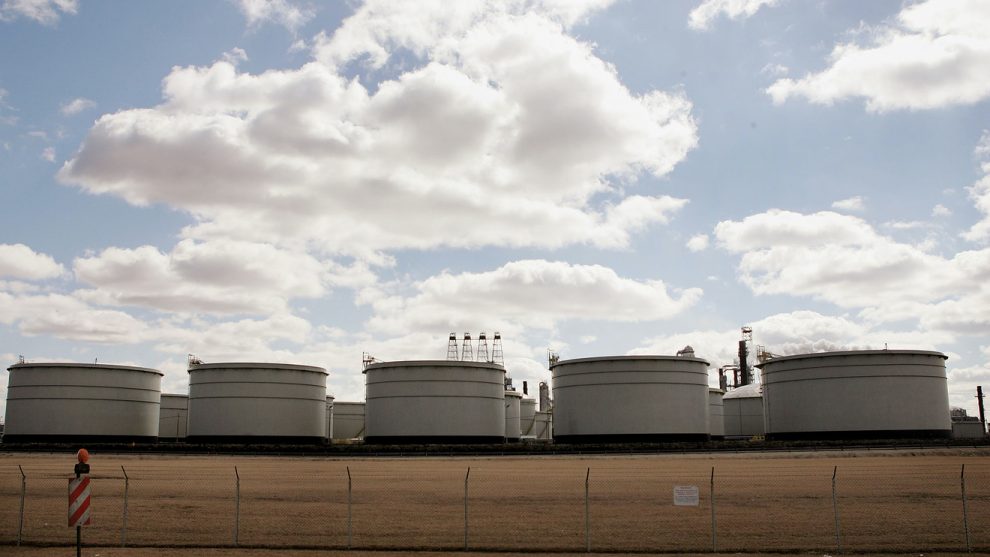
Oil futures resumed their drop Monday, tracking losses ripping through broader financial markets as concern for a prolonged trade war and its risk to global crude demand was rekindled.
Last week, the U.S. oil benchmark suffered its biggest one-day fall in more than four years and ended lower for the week after President Donald Trump moved to impose additional import tariffs on Chinese goods and China pledged retaliation on other goods.
China’s currency on Monday weakened below the important level of 7 yuan to the dollar, sparking a global selloff in equities and other assets perceived as risky as investors flooded into haven assets, including Treasurys.
See: Why Trump’s tariff tweet sparked market mayhem
“This latest headline risk does suggest both sides [on the U.S.-China negotiations] are digging in for the long haul and it’s unlikely OPEC supply discipline will provide an adequate counterbalance to these escalating trade tensions, which could weigh like an anchor on oil prices this week,” said Stephen Innes, managing partner with VM Markets in Singapore.
In recent trading, West Texas Intermediate crude for September delivery CLU19, -1.20% fell 70 cents, or 1.3%, to $54.96 a barrel on the New York Mercantile Exchange.
Friday’s rebound recovered a portion of the 7.9% drop from Thursday. But the front-month contract still suffered a 1% weekly loss last week, according to Dow Jones Market Data, as WTI’s drop on Thursday marked the biggest percentage fall for a front-month contract since Feb. 4, 2015 and the settlement at $53.95 that day was the lowest since June 19, according to Dow Jones Market Data.
Global benchmark October Brent crude BRNV19, -1.16% fell 72 cents, or 1.2%, to $61.38 a barrel on ICE Europe. With its loss fattened by Thursday’s 7% slide, the contract ended 2.3% lower for last week.
As for broader markets, stock futures YM00, -1.38% were down between 1.2% and 1.7%, while benchmark Treasury yields TMUBMUSD10Y, -3.42% dropped to 1.769%. The U.S. Dollar Index DXY, -0.40% dropped 0.4%, but the weaker U.S. dollar, typically a boon to commodities, offered little help for oil.
Traders are retaining focus on tariffs, JBC Energy analysts said in a note, while also keeping tabs on Iran, and Middle East disruption could prove price-supportive.
Iranian forces seized an Iraqi tanker allegedly smuggling fuel near Iran’s Farsi Island in the Persian Gulf over the weekend, the country claimed, according to several major news outlets.
Meanwhile, September gasoline RBU19, -1.17% fell 2 cents, or 1.2%, to $1.7605 a gallon, ending 2.2% lower for last week, while September heating oil HOU19, -1.13% fell 2 cents, or 1%, to $1.8711 a gallon, for a weekly loss of 1.2% last week.
September natural gas NGU19, -3.25% lost 3 cents, or 1.5%, to $2.09 per million British thermal units, after a weekly decline of 1.4%.
Also see: At Exxon and Chevron, market weakness trumps headline beats












